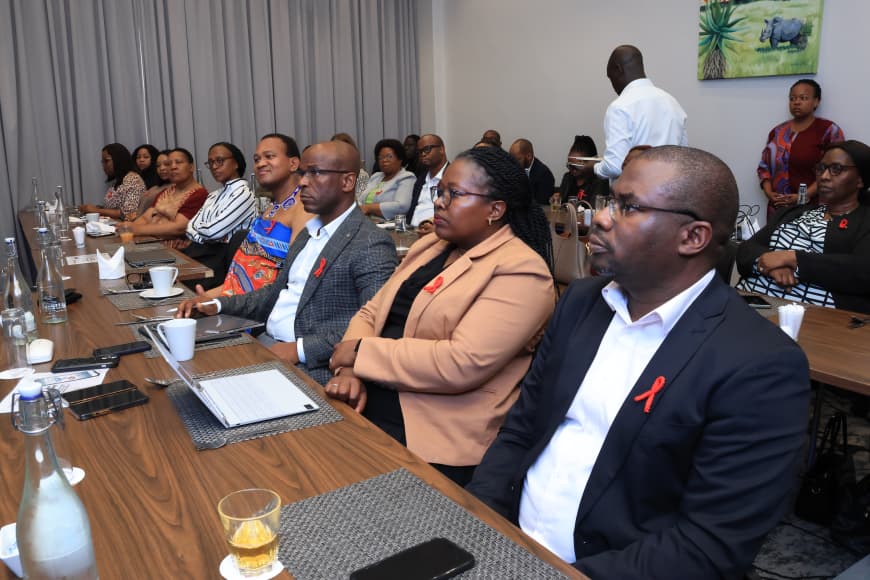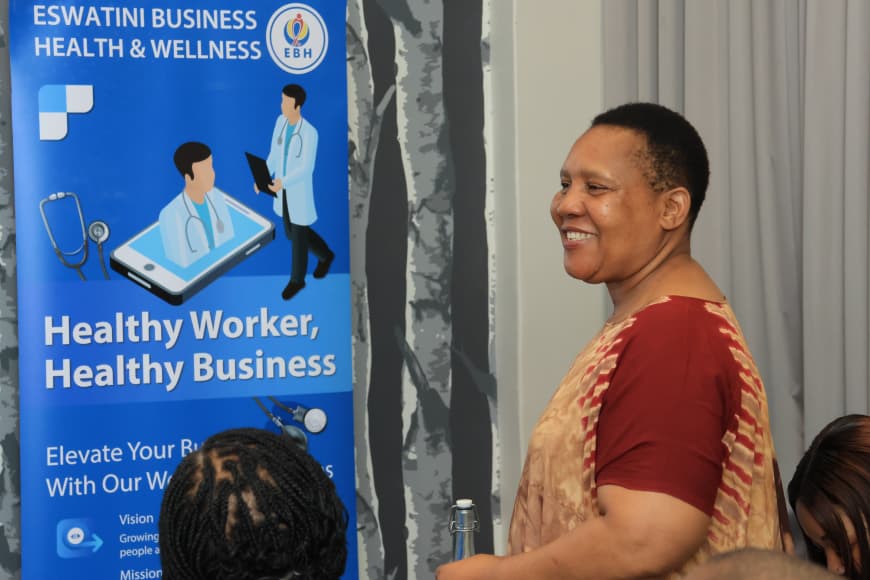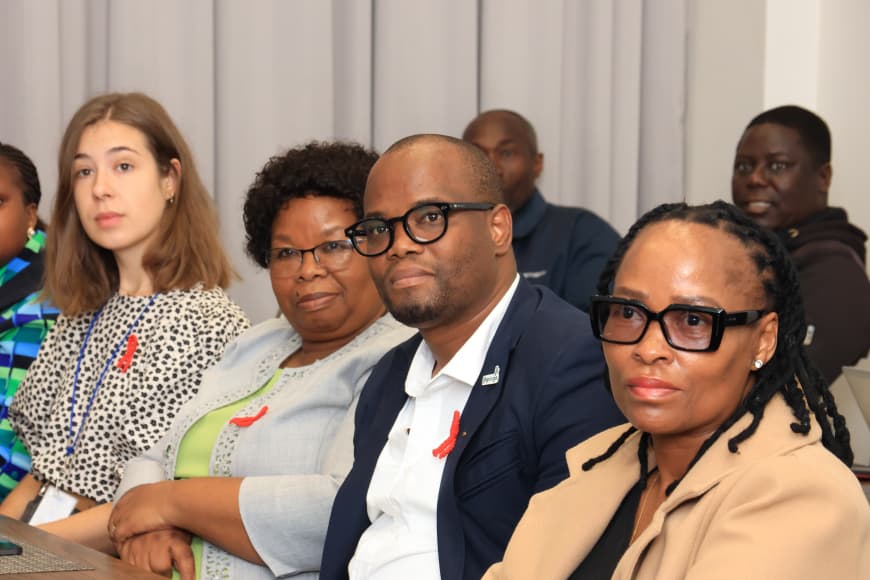
By Tlalane Dlamini
Business leaders, policymakers, and health sector representatives gathered at the Hilton Garden Inn for a high-level HIV and Workplace Wellness Breakfast Meeting on October 15, 2025, hosted by Eswatini Business Health and Wellness (EBH) in partnership with the National Emergency Response Council on HIV and AIDS (NERCHA). The event brought together industry leaders to discuss how the private sector can strengthen Eswatini’s HIV and AIDS response through workplace wellness and corporate health programs.
Held under the theme “Unpacking the Role of the Private Sector in the New National HIV & AIDS Strategic Framework (2024–2028),” the event highlighted the vital connection between workforce wellness, productivity, and national development.
Renewed Focus on HIV and Workplace Wellness
Dr. Bongani Masango, Director for HIV Response and Coordination, explained the National HIV & AIDS Strategic Framework (NSF 2024–2028)—Eswatini’s plan for maintaining progress and addressing remaining gaps in the fight against HIV.
Dr. Masango highlighted that while the country has made remarkable strides in reducing HIV incidence and AIDS-related deaths, significant challenges persist among young women aged 15 to 29, men over 30, and key populations such as sex workers and men who have sex with men.
The new framework emphasizes “sustaining the gains and bridging existing gaps,” highlighting innovation, inclusivity, and multi-sectoral collaboration. He mentioned that the private sector’s active involvement through workplace-driven programs is crucial to reaching Eswatini’s goal of ending AIDS as a public health threat by 2030.
Call to Action from NERCHA Leadership


During the breakfast meeting, NERCHA’s National Executive Director, Dr. Nondumiso Ncube, reminded the business community that the fight against HIV is far from over.
“HIV remains a public health threat in Eswatini, and we cannot afford to become complacent,” she cautioned. “Because of the gains achieved over the years, many young people have never witnessed the devastating effects of AIDS. This has created a sense of distance from the reality of the epidemic. It is therefore incumbent upon all of us, government, civil society, and the private sector, to ensure that every individual plays their part in reducing new HIV infections, particularly among priority populations.”
Dr. Ncube emphasized that maintaining momentum requires consistent investment, strong leadership, and inclusive partnerships that extend beyond the health sector into every workplace.
Private Sector Leadership and Collaboration
In her remarks, Thobile Dlamini, Chief Executive Officer of Eswatini Business Health and Wellness (EBH), reaffirmed the organization’s commitment to promoting workplace wellness as a key factor for productivity and sustainable growth.
“A healthy workforce is a productive workforce, and workplace wellness is no longer optional; it is a strategic business imperative,” said Dlamini. “The private sector is an indispensable partner in driving the national health agenda. By integrating HIV prevention, treatment, and wellness programs into the workplace, we are not only protecting our employees but also contributing to the nation’s economic and social resilience.”
The Private Sector’s Commitment

Representing the business community, Mr. Mvuselelo Fakudze, President and Board Chairman of EBH and Chief Executive of Standard Bank Eswatini, praised the collaboration between EBH and NERCHA and confirmed the private sector’s readiness to continue actively participating in the national response.
“In the private sector, we bear a great responsibility because most of the people we employ support multiple dependents,” Mr. Fakudze stated. “Our influence extends beyond our offices and factories; it reaches into homes and communities. As business leaders, we must take a proactive role in supporting HIV prevention, treatment, and wellness efforts. Standard Bank and the broader private sector remain dedicated to partnering with government and development agencies to ensure that no one is left behind.”
His remarks reflected the increasing recognition that businesses are not only economic drivers but also important contributors to social progress and public health.
Key Highlights from the National Strategic Framework
Dr. Masango’s presentation outlined the main priorities of the NSF 2024–2028, which include:
• Reducing HIV incidence among adults aged 15+ from 0.62 in 2021 to 0.31 by 2028.
• Halving new infections among females aged 15–49 by 2028.
• Reducing mother-to-child transmission to below 1%.
• Lowering AIDS-related deaths by 70% by 2028.

He further emphasized that Eswatini continues to lead globally in HIV testing and treatment, with 94% of people living with HIV aware of their status, and high rates of viral suppression. However, sustaining these achievements will require stronger partnerships with the private sector, greater investment in prevention programs, and continuous community engagement.
Strengthening Health and Business Integration
The breakfast meeting emphasized the importance of integrating wellness into corporate strategy and company culture. Participants discussed best practices for promoting routine HIV testing, mental health support, and anti-stigma education in the workplace.
By prioritizing employee wellness, businesses not only enhance productivity but also contribute to Eswatini’s broader development goals. The dialogue reaffirmed that wellness should be viewed not as a cost, but as a long-term investment in workforce resilience and national prosperity.
